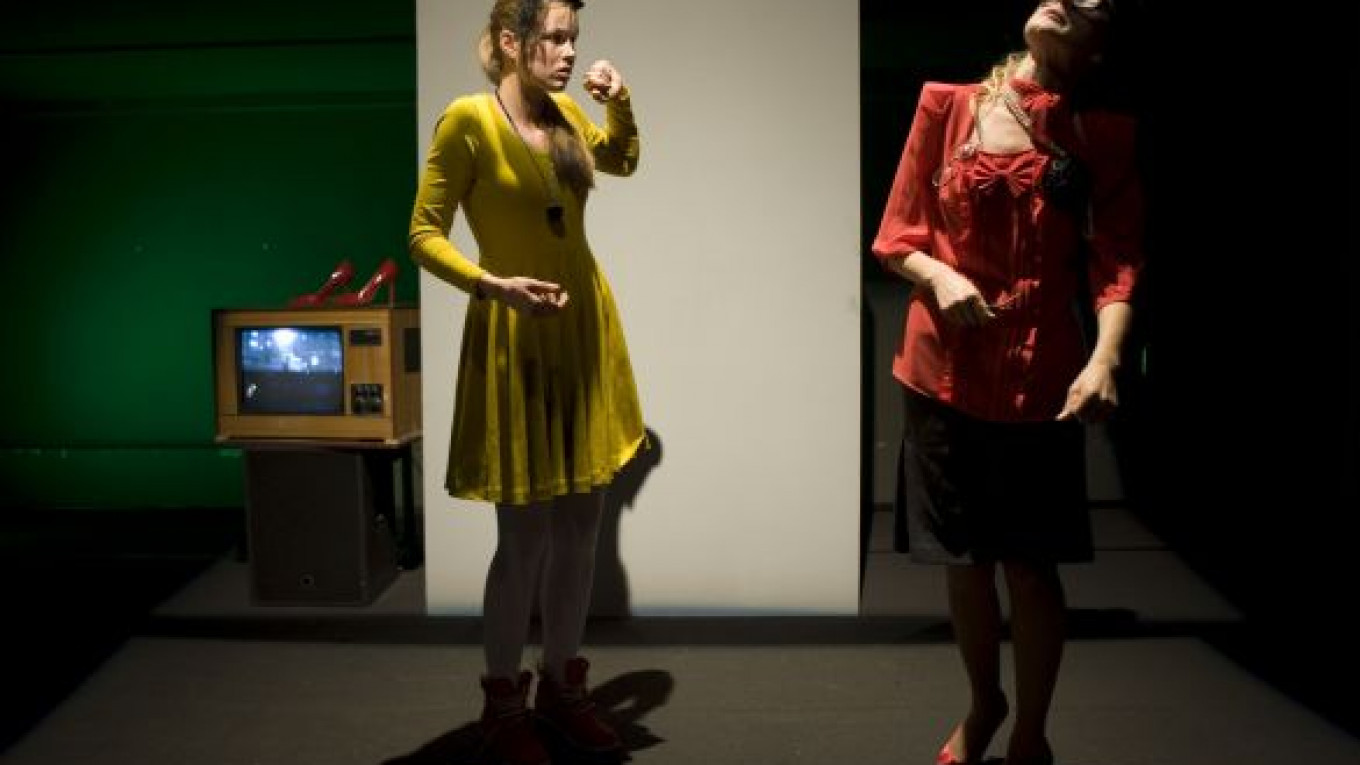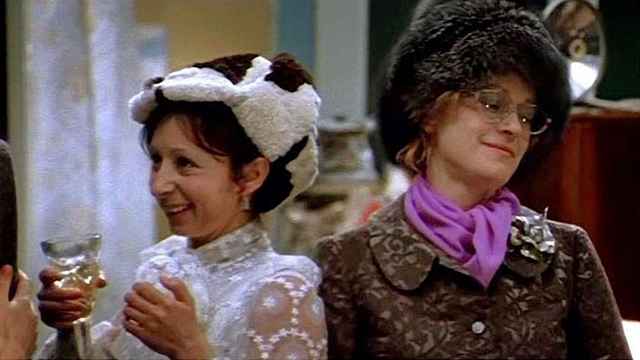There is no getting around disappointment. It creeps into every pore and colors every direction in which you look.
I say this because last summer I attended a marvelous staged reading of Meg Miroshnik's play "The Fairy-Tale Lives of Russian Girls" at the Playwright and Director Center. It was part of a workshop that brought four dramatists from the Yale University School of Drama to Moscow to watch their plays take shape in translation under the guidance of Russian directors.
"Fairy-Tale Lives" was the most successful of the bunch, although it was still a sketch. Director Ilya Shagalov took a lively, funny approach to Miroshnik's tale about a Russian immigrant teenager whose mother decides to kick-start her daughter's career by sending her back for a summer in Russia. It's a place, mother says, where everybody's a millionaire now because they all got their apartments for free.
As a result of this success, the theater asked Shagalov to return to work and make the play into a full-fledged show. Which is where the cliches start piling up: The best laid plans of mice and men; many a slip twixt cup and lip. In other words, what happened?
When I saw the new production performed I saw virtually nothing of what I saw last summer. Yes, the colorful costumes were still there. Yes, a live musical combo still sat off to one side. Yes, there were still some perky performances from the cast.
But the heart and soul of the play were gone.
There are a few reasons why this might have happened.
The sketch was performed in the theater's cramped foyer filled to the brim with spectators and actors alike. The full production was moved to a regular stage, which is spacious, airy and cold. Cold is almost always bad in theater, an art form that has a love affair with heat.
Furthermore, Shagalov chose to ignore large chunks of Miroshnik's text, leaving behind more or less the bare bones of the original incomplete sketch. The result is that the story provides no journey. Plain and simple, it feels incomplete. As though someone opens her mouth to speak then chooses not to instead. The end.
The story that transpires on stage runs more or less as follows.
Annie (Alexandra Revenko) has no desire to travel back to the land of her birth, but her mother will have nothing of that. She gives Annie a red fur hat to protect her against that cold, Russian summer weather and sends her on her way. After run-ins with a border guard and a crazy woman on the street, Annie finds herself sleeping on the floor of her preoccupied and indifferent Aunt Yaroslava (Olga Khokhlova). One day while taking out the trash, she meets the tough, enigmatic Masha (Olga Voronina) and they become friends. They talk, party a bit and realize they are from vastly different worlds.
These Russian girls, Annie comes to think, are more interested in fairy tales than real life. These American girls, thinks Masha, who is stuck in a bad marriage to a mean bear of a man, don't know a thing about real life.
All of this goes nowhere exceedingly fast. Before we really learn anything about the characters, the trio of actresses is singing a Russian folk version of the Eagles' hit song "Hotel California" and we are on our way out of the theater.
Rather than provide insight into the cliches that abound in the perceptions Americans and Russians have about one another, this production merely serves a few up then ends it all with a song.
Designer Olga Nikitina added precious little to the show's visual aspect, aside from Annie's yellow dress, the red hat and some fairy-tale Russian princess crowns. A portable metal rack is about the only significant prop — serving as everything from passport control at customs, to Auntie Yaroslava's apartment. The rest is an empty stage that yawns at us cavernously.
This is all the more frustrating because there are some fine performances. Revenko is convincing as the simple, innocent, but thoughtful, Annie, while Voronina is a comic whirlwind in the many roles she takes on. She easily slips back and forth between the extremes of a frumpy tour leader and the sexy, let-it-all-hang-out Masha.
But in the end this production of "The Fairy-Tale Lives of Russian Girls" is a cautionary tale. What starts out good doesn't always end that way.
"The Fairy-Tale Lives of Russian Girls" (Skazochnaya Zhizn Russkikh Devushek) plays Wed. and March 29 at 8 p.m. at the Playwright and Director Center, located at 5 Begovaya Ulitsa. Metro Begovaya. Tel. 945-3245, 499-248-0254. . Running time: 1 hour, 20 minutes.
A Message from The Moscow Times:
Dear readers,
We are facing unprecedented challenges. Russia's Prosecutor General's Office has designated The Moscow Times as an "undesirable" organization, criminalizing our work and putting our staff at risk of prosecution. This follows our earlier unjust labeling as a "foreign agent."
These actions are direct attempts to silence independent journalism in Russia. The authorities claim our work "discredits the decisions of the Russian leadership." We see things differently: we strive to provide accurate, unbiased reporting on Russia.
We, the journalists of The Moscow Times, refuse to be silenced. But to continue our work, we need your help.
Your support, no matter how small, makes a world of difference. If you can, please support us monthly starting from just $2. It's quick to set up, and every contribution makes a significant impact.
By supporting The Moscow Times, you're defending open, independent journalism in the face of repression. Thank you for standing with us.
Remind me later.







